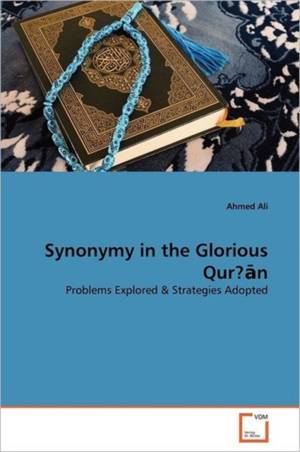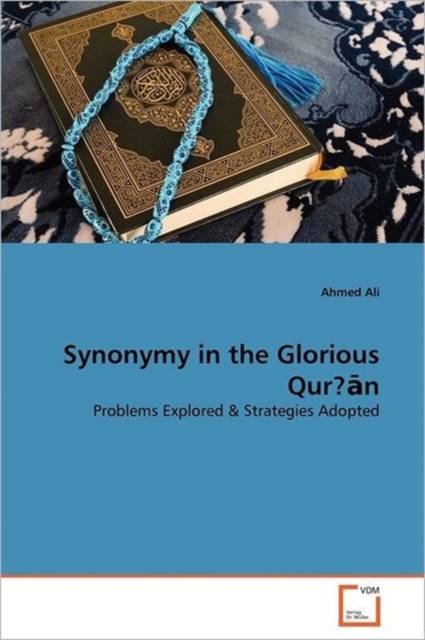
Bedankt voor het vertrouwen het afgelopen jaar! Om jou te bedanken bieden we GRATIS verzending (in België) aan op alles gedurende de hele maand januari.
- Afhalen na 1 uur in een winkel met voorraad
- In januari gratis thuislevering in België
- Ruim aanbod met 7 miljoen producten
Bedankt voor het vertrouwen het afgelopen jaar! Om jou te bedanken bieden we GRATIS verzending (in België) aan op alles gedurende de hele maand januari.
- Afhalen na 1 uur in een winkel met voorraad
- In januari gratis thuislevering in België
- Ruim aanbod met 7 miljoen producten
Zoeken
€ 113,45
+ 226 punten
Omschrijving
In translating the meanings of the Qur? n, a translator may face some problems related to synonymy. In other words, any translator may fail to find an adequate equivalent if s/he cannot distinguish, for example, between faqr, iml q and ylah, dhulm, bagh and jawr, and al-Zam n, al- Dahr, al-Amad and al-Muddah, etc. In this regard, a distinction must be made between these various synonyms so as to convey the content without much loss. Thus, any translator should be fully aware of the nature of the original text, its form, style, and syntactic structure as well as the TL norms. This undoubtedly shows the importance of the role undertaken by any translator during the process of translating the meanings of the Qur? n. This issue is very problematic because linguists are divided into two parties. The first defends the existence of synonymy and admits that the Glorious Qur? n abounds in synonyms. The second rejects the occurrence of synonymy in natural languages in general and in the Glorious Qur? n in particular, believing that every single word conveys a distinctive meaning that cannot be substituted by another word.
Specificaties
Betrokkenen
- Auteur(s):
- Uitgeverij:
Inhoud
- Aantal bladzijden:
- 216
- Taal:
- Engels
Eigenschappen
- Productcode (EAN):
- 9783639359312
- Verschijningsdatum:
- 23/06/2011
- Uitvoering:
- Paperback
- Afmetingen:
- 152 mm x 229 mm
- Gewicht:
- 322 g

Alleen bij Standaard Boekhandel
+ 226 punten op je klantenkaart van Standaard Boekhandel
Beoordelingen
We publiceren alleen reviews die voldoen aan de voorwaarden voor reviews. Bekijk onze voorwaarden voor reviews.









